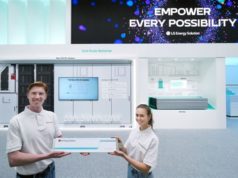Jobs. That’s the message Silicon Valley’s newest congressional representative wants to bring to Washington D.C. when he takes on the mantle of representing California’s 17th Congressional District from seven-term veteran Rep. Mike Honda.
Rohit “Ro” Khanna, a 40-year-old intellectual property attorney and former deputy secretary of commerce in the Obama administration, ran as the voice of Silicon Valley, counting among his donors the heads of multiple tech corporations.
Khanna’s district, encompassing the cities of Sunnyvale, Cupertino, Fremont, and the northernmost parts of San Jose, includes the headquarters of many top tech firms, including Apple, Google, Yahoo, LinkedIn, and Tesla. More than half the residents of California’s 17th Congressional District are Asian American, according to the U.S. Census.
“It’s an extraordinary time to serve and an extraordinary responsibility,” Khanna told NBC News. “I particularly represent the only Asian majority district in the continental United States, and it’s the heart of Silicon Valley.”
“We all know we have to care about how we’re going to create new jobs in this country and prepare people for those jobs. And on those type of issues, those aren’t Republican or Democratic issues.”
While Khanna has lived in the Bay Area for the past 15 years, he is originally from Philadelphia, a self-described “bicentennial baby” born in 1976 in the city where the constitution was signed. He was raised in the suburbs of Philadelphia by Indian immigrant parents, a chemical engineer father and schoolteacher mother, attending public schools. Khanna credits his inspiration in politics to his grandfather, Amarnath Vidyalankar, an Indian activist who fought for independence from Britain and served four years in jail with Mahatma Gandhi during the 1940s.
Khanna’s victory in November was the end of his second campaign to unseat Honda, a past chairman of the Congressional Asian Pacific American Caucus. In 2014, Khanna lost his first bid to unseat Honda by five percentage points. This year, Khanna won by a 20-percent margin, with the endorsements of news outlets such as the San Francisco Chronicle and San Jose Mercury News as well as campaign contributions from Facebook’s Sheryl Sandberg; Wendy Schmidt, the wife of Google parent company Alphabet CEO Eric Schmidt; and PayPal founder Peter Thiel — who was thrust into the national spotlight for endorsing president-elect Donald Trump during the Republican National Convention — according to Federal Election Commission filings.
“I was criticized during the campaign for having supporters on both sides. But I think it’s going to be a big advantage,” Khanna said. “It will help me work across the aisle when there are issues on the economy to get something done. We all know we have to care about how we’re going to create new jobs in this country and prepare people for those jobs. And on those type of issues, those aren’t Republican or Democratic issues.
“It’s an extraordinary time to serve and an extraordinary responsibility. I particularly represent the only Asian majority district in the continental United States, and it’s the heart of Silicon Valley. “
While this is Khanna’s first elected office, he plans to draw upon his experience in both the Obama administration and in private business. “I have helped shape in the past the Democratic Party’s agenda on innovation,” he said. “And I want to be laser focused on offering new ideas — some coming from Silicon Valley — on how we are going to create jobs and how are we going to create jobs not just in the valley but for the rest of America and that’s going to be my focus in Congress, laser focused on the economy and creating new jobs in this new economy. I want to help bring tech jobs to middle America and help us create more innovation clusters.”
In addition to his two-year stint at the Commerce Department and his career in patent law, Khanna teaches economics at Stanford. He offers a two-pronged approach to improving the US economy: focusing on bringing jobs back to the United States and improving education through better access to vocational training or working toward tuition-free college. At the same time, he vows to fight for the Affordable Care Act.
While Khanna ran on a platform emphasizing jobs and education reform, he is also stepping onto Capitol Hill at a time when civil rights concerns are running high because of Trump’s campaign promises on immigration and a proposed Muslim registry. At a Dec. 4 town hall meeting with his constituents in San Jose, some of the 250 people in attendance asked how he would deal with the idea of a Muslim registry.
RELATED: Tech Workers Pledge Not to Build Muslim Registry
“I will oppose a Muslim registry with every fiber of my being. That is not the American way of conducting affairs and violates every principle we stand for,” Khanna said. “And it’s going to be increasingly important at this time in history to make the case that our very founding principles mean that every person should be judged on their merits not based on their race, religion or their last name.”
When asked how he could use his bipartisan appeal to help bridge the gap between nativists and more diverse and immigrant populations, Khanna invites his fellow lawmakers to Silicon Valley to see how diversity has been an asset.
“Let me show you the incredible diversity in these companies and what’s propelling and fueling economic growth that we’re all proud of,” Khanna said. “And by linking the diversity to our economic success and innovative success, I hope I can convince people on the other side of the aisle who ultimately care about America’s economic strength that our diversity has been a key ingredient in that strength.”
Follow NBC Asian America on Facebook, Twitter, Instagram, and Tumblr.






